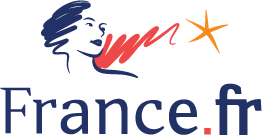
France is a state. France.com, by contrast, is a domain name, and it was, until recently, owned not by the French state but instead by a Californian company, France.com, Inc. That conflict is now being litigated in a fascinating dispute reminiscent of the early days of the internet.
In those early days, in 1994 to be precise, a French-born individual living in the United States, Jean-Noël Frydman, registered the domain name France.com. The domain name is now held by a Californian company, France.com Inc, which Frydman set up. The website, at first dedicated to general information for Francophiles around the world, was later expanded to operate as a travel site. But France.com, Inc, did not, it appears, own trademarks in Europe. This enabled a Dutch company, Traveland Resorts, to register French and European word and graphic marks for France.com in 2010. In 2014, France.com, Inc brought suit in France against Traveland for fraudulent filings of trademarks and achieved a settlement under which Traveland transferred the trademarks.
But that was a Pyrrhic victory. The French state and its own travel development agency, Atout, intervened in the litigation, claiming the trademarks for itself instead. Atout had been running, since 2010, its own information site, france.fr. French state and Atout were successful, first before the Tribunal de Grande Instance, Paris , and then, partly, on appeal before the Cour’ d’appel de Paris (English translation, note by Alison Bouakel) As a consequence, web.com transferred the domain in 2018. Now, France.com immediately directs to France.fr.
So far, the conflict is mostly a French affair. But Frydman is taking the litigation to the United States. France.com, Inc has brought suit in Federal Court in Virginia against the French State, Atout, and against Verisign, the authoritative domain registry of all .com addresses. The suit alleges cybersquatting, reverse domain hijacking, expropriating, trademark infringement, and federal unfair competition. US courts and WIPO panels have so far not looked favorably at foreign government’s claims for their own .com domain name; examples include PuertoRico.com, NewZealand.com, and Barcelona.com. Will the French State be more successful, given the French judgment in its favor?
Although neither the French courts nor the complaint in the United States address conflict of laws issues, the case is, of course, full of those. Are the French state and its travel agency protected by sovereign immunity? The Foreign Sovereign Immunities Act contains an exception for commercial activities and is limited to sovereign acts: Does ownership of a domain name constitute commercial activity? Surely, many of the activities of Atout do. Or is it linked to sovereignty? After all, France is the name of the country (though not, ironically, the official name.) The U.S. Court of Appeal for the Second Circuit left the question open in 2002 (Virtual Countries, Inc. v. South Africa, 300 F.3d 230).
Must the federal court recognize the French judgment? That question is reminiscent of the Yahoo litigation. Then, a French court ordered that Yahoo.com could not offer Nazi paraphernalia on its auction website. Yahoo brought a declaratory action in federal court against recognizability of the judgment in the United States. The affair created a lively debate on the limits of territorial reach in internet-related litigation, a debate that is still not fully resolved.
Relatedly, did the French state engage in illegal expropriation without compensation? Such acts of expropriation are in principle limited to the territory of the acting state, which could mean that the French state’s actions, if so qualified, would be without legal effect in the United States.
To what extent is US law applicable to a French trademark? By contrast, to what extent can the French trademark determine ownership of the domain? Trademarks are a perennially difficult topic in private international law, given their territorial limitations; they conflict in particular with the ubiquity of the internet.
Is the top level domain name – .com, as opposed to .fr – a relevant connecting factor in any of these matters? That was once considered a promising tool. But even if .fr could in some way link to France as owner, it is not clear that .com links to the United States, given that it has long been, effectively, a global top level domain. On the other hand, most governments do not own their own .com domain. And US courts have, in other cases (most famously concerning barcelona.com) not doubted applicability of US law.
A timeline with links to documents can be found at Frydman’s blog site.



